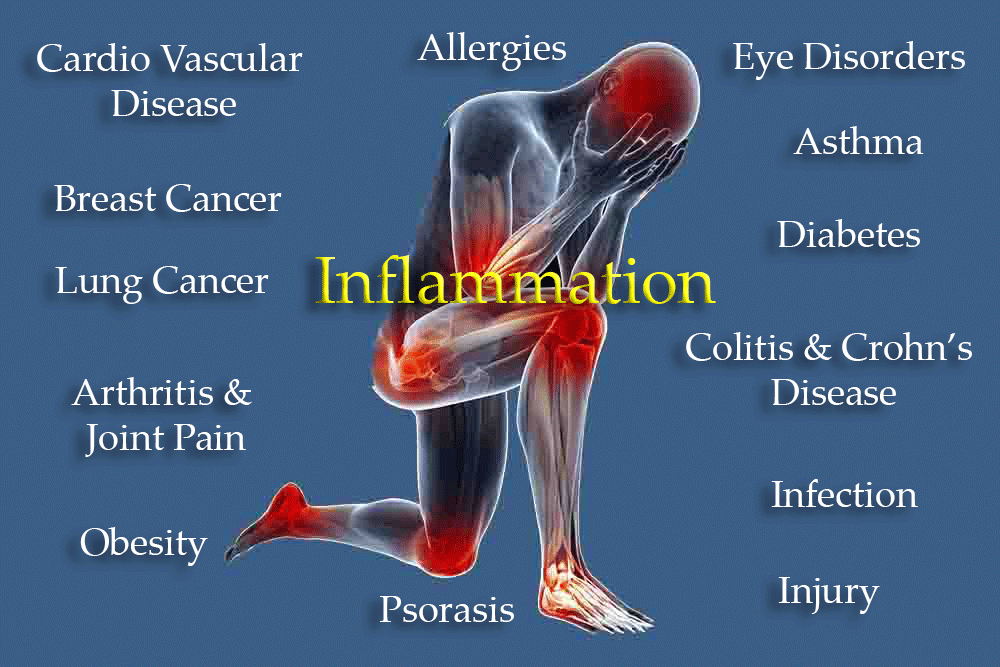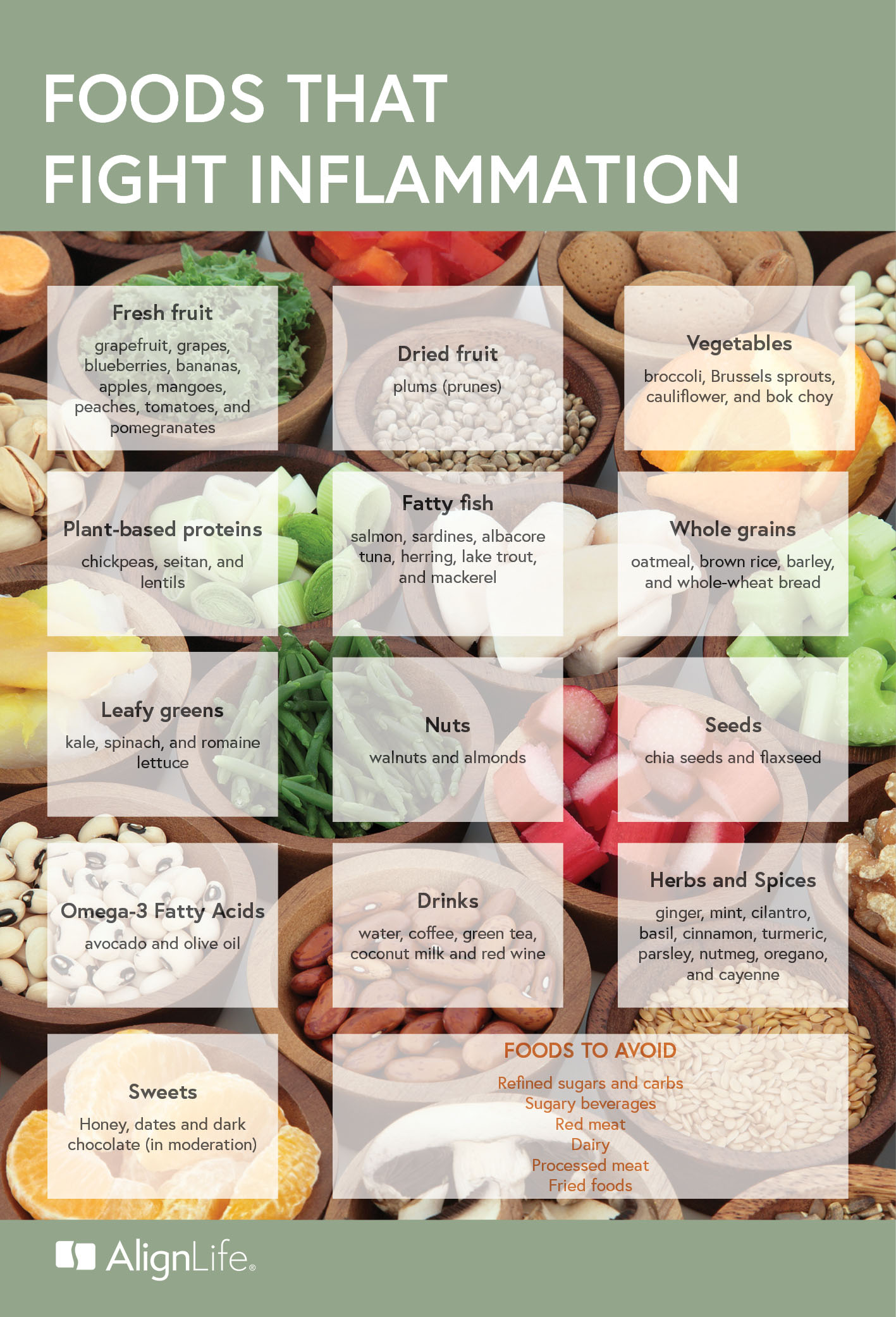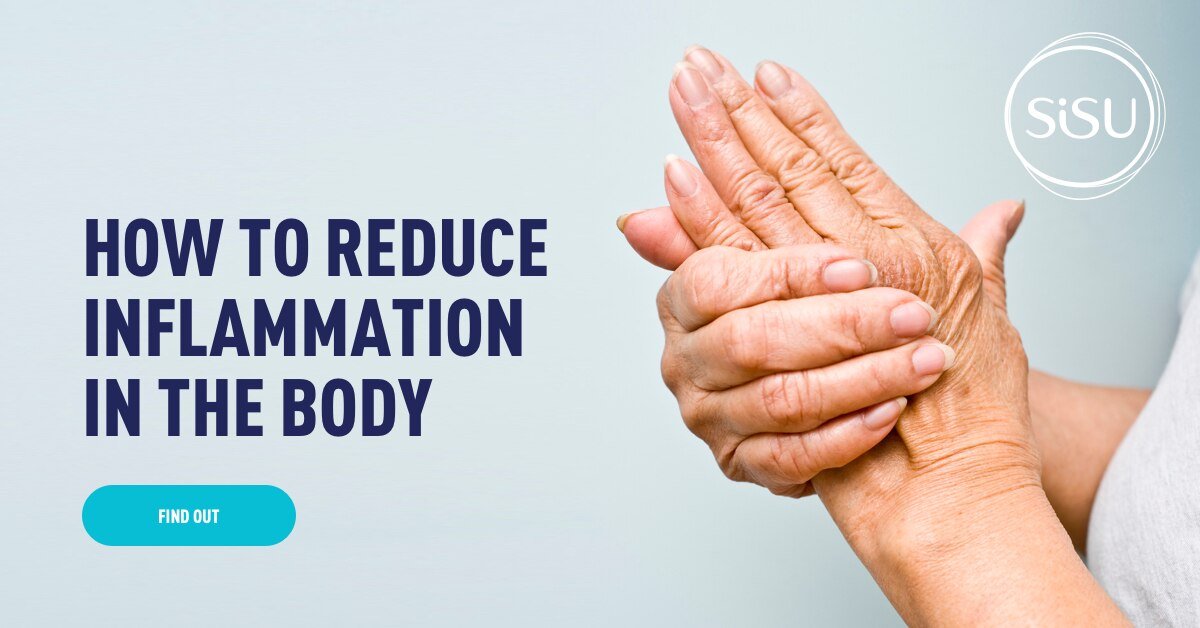Inflammation is a natural response of the immune system that helps protect our bodies from infection and injury. However, when inflammation becomes chronic, it can wreak havoc on our health, leading to a wide range of diseases such as arthritis, heart disease, and even cancer. The good news is that there are simple and effective ways to reduce body inflammation naturally. By making small changes in our lifestyle choices – from adopting an anti-inflammatory diet to incorporating regular exercise and stress-reducing techniques – we can take charge of our well-being and significantly decrease the risk of chronic inflammation. In this article, we will explore evidence-based strategies and practical tips to help you on your journey towards a healthier life with reduced inflammation.
Causes Of Body Inflammation

- One of the most common causes of body inflammation is a poor diet filled with processed foods and unhealthy fats. Foods high in sugar, refined carbohydrates, and trans fats can trigger an inflammatory response in the body. In addition to affecting our waistline, these types of foods can increase levels of inflammation-promoting molecules in the body, leading to chronic inflammation over time.
- Another significant cause of body inflammation is excessive stress. When we are under prolonged periods of stress, our bodies release hormones such as cortisol that can trigger an inflammatory response. Chronic stress can also impair our immune system’s ability to regulate inflammation properly. Incorporating stress-reduction techniques such as meditation, exercise, and adequate sleep into our daily routine can help counteract this.
- Physical inactivity is also linked to increased levels of inflammation in the body. Regular exercise has been shown to decrease systemic inflammation by reducing levels of certain pro-inflammatory molecules and increasing anti-inflammatory proteins. A sedentary lifestyle not only affects our overall health but also contributes to chronic low-grade inflammation.
Overall, adopting a healthy lifestyle that includes a balanced diet, stress management techniques, and regular physical activity plays a crucial role in reducing chronic body inflammation and promoting overall well-being.
Foods To Avoid For Reducing Inflammation

When we talk about reducing inflammation in the body, it’s important to understand that what we eat plays a crucial role. Certain foods can contribute to chronic inflammation and should be avoided if we want to achieve optimal health.
- One such food group is processed foods. These include items like fast food, frozen meals, and packaged snacks. They are often high in trans fats, refined sugars, and artificial additives which can trigger an inflammatory response in the body.
- Another group of foods to avoid is those that contain high amounts of refined carbohydrates. Foods such as white bread, pasta, and pastries cause a rapid spike in blood sugar levels, leading to increased production of inflammatory molecules. Instead of these refined carbs, opt for whole grains like quinoa or brown rice which contain fiber and other nutrients that have anti-inflammatory properties.
- Lastly, it’s best to steer clear of foods that contain excessive amounts of saturated fats. Consuming too much red meat or full-fat dairy products has been associated with increased inflammation markers in the body. Opt for lean protein sources like fish or poultry instead and incorporate plant-based fats from sources like avocados or nuts into your diet.
By avoiding processed foods, refined carbohydrates, and excessive saturated fats you can greatly reduce inflammation in your body and improve overall health.
Anti-Inflammatory Foods To Include In Your Diet

When it comes to reducing inflammation in the body, diet plays a critical role. Incorporating anti-inflammatory foods into your daily meals can help combat chronic inflammation and promote overall wellness.
- One such food is turmeric, which contains a compound called curcumin known for its potent anti-inflammatory properties. Adding turmeric to your dishes or enjoying it in the form of golden milk can provide numerous health benefits.
- Another powerful anti-inflammatory food is salmon, rich in omega-3 fatty acids. These healthy fats help reduce inflammation throughout the body and support cardiovascular health. Including salmon in your diet two to three times a week can provide these beneficial effects. Other foods like berries, leafy greens, and olive oil are also great options to include regularly as they contain antioxidants and healthy fats that fight inflammation.
By incorporating these anti-inflammatory foods into our diets, we not only address ongoing inflammation but also work towards preventing future imbalances within the body.
Lifestyle Changes To Reduce Inflammation
Lifestyle changes can play a significant role in reducing inflammation throughout the body. One crucial aspect is adjusting our diet to include more anti-inflammatory foods while limiting those that promote inflammation. Adding colorful fruits and vegetables such as berries, leafy greens, and cruciferous vegetables can provide essential antioxidants and phytochemicals that help combat inflammation. Incorporating omega-3 fatty acids from sources like salmon, chia seeds, or walnuts may also have anti-inflammatory effects.
Regular exercise is another integral part of lifestyle changes that can reduce inflammation levels. Engaging in moderate-intensity activities like brisk walking, swimming, or cycling for at least 30 minutes a day helps regulate the immune system and improve insulin sensitivity. Exercise also promotes the release of endorphins, which act as natural painkillers and mood boosters. Furthermore, maintaining a healthy weight through regular physical activity contributes to reducing chronic low-grade inflammation associated with obesity.
Natural Remedies For Reducing Body Inflammation

- Inflammation is the body’s natural response to injury or infection, but chronic inflammation can lead to a host of health issues. While over-the-counter and prescription medications can help reduce inflammation, there are also natural remedies that offer relief without the side effects. One powerful remedy is turmeric, which contains curcumin, a compound with potent anti-inflammatory properties.
- Another effective natural remedy for reducing body inflammation is ginger. This root has been used for centuries in traditional medicine to treat various ailments, including inflammation. The active compounds in ginger, such as gingerol and zingerone, have been shown to inhibit inflammatory pathways in the body. Whether consumed as tea or added to recipes, ginger can provide noticeable relief from chronic inflammation.
- Additionally, incorporating omega-3 fatty acids into your diet can help combat inflammation naturally. These essential fats are abundant in fatty fish like salmon and sardines. Studies show that omega-3s reduce the production of pro-inflammatory molecules while increasing levels of anti-inflammatory compounds within the body. By regularly consuming these healthy fats, you can minimize chronic inflammation and promote overall well-being.
By exploring these natural remedies for reducing body inflammation such as turmeric, ginger, and omega-3 fatty acids – readers will discover new tools for managing their health without relying solely on medications with potential side effects.
Conclusion:
In conclusion, taking steps towards a healthier, inflammation-free life is not only possible but essential for overall well-being. By incorporating simple lifestyle changes and making conscious choices, we can greatly reduce the inflammation in our bodies and experience a new level of vitality. One such step is to adopt an anti-inflammatory diet rich in whole foods, such as fruits, vegetables, healthy fats, and lean proteins.
In addition to dietary changes, regular exercise can also play a significant role in reducing inflammation. Engaging in physical activity not only helps maintain a healthy weight but also releases endorphins that naturally combat inflammation. Whether it’s going for a brisk walk or dedicating time to a workout at the gym, finding an activity you enjoy can make all the difference.
Lastly, managing stress levels is crucial when aiming for optimal health and minimal inflammation. Chronic stress has been linked to increased inflammation in the body. Incorporating stress-management techniques like meditation or practicing mindfulness can help keep our stress levels in check and promote overall wellness.
By implementing these lifestyle adjustments – adopting an anti-inflammatory diet, engaging in regular exercise, and managing stress levels – we are taking powerful steps towards living a healthier life free from the burden of constant inflammation. Remember that small changes add up over time; be patient with yourself on this journey toward better health.
Also Read: How To Paint A Room With A view




